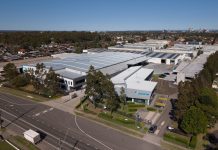
A new report from Engineers Australia has revealed a deepening engineering skills crisis in the country and the vital role of engineers in driving every sector of the nation’s economy.
The report, titled Statistical Overview of the Engineering Profession, said engineers remain the backbone of Australia’s national capability, with the country relying on approximately half a million qualified engineers to address its most pressing challenges – from climate change to clean energy transition and complex infrastructure needs.
However, Australia’s engineering skills and labour shortage have been at an all-time high in over a decade.
Speaking at the Parliament House launch, Engineers Australia CEO Romilly Madew said the report serves as a critical resource for policy and decision-makers to help them make informed decisions when tackling the challenges and opportunities facing the Australian engineering landscape.
“As the world continues to embrace technology and systems, becoming more sophisticated and interdependent, our economy and society are more reliant than ever on the engineering profession. This report reveals a growing gulf, with Australia sliding towards a ‘new norm’ of an economy hampered by an engineering skills shortage,” Madew said.
Despite a significant increase in the number of qualified engineers between 2016 and 2021, demand still outpaces supply, growing at three times the rate of the general workforce.
The report discussed the significant challenges in recruiting experienced engineers in various sectors, including defence, clean energy, power systems, construction, and software engineering.
It also emphasised the need for coordinated national efforts focused on increasing engineering graduates, retaining women in engineering, addressing the impending retirement cliff, removing barriers for migrant engineers, and representing the engineering industry in the public sector to support practical decision-making.
“The implications range from delays to nation-building projects, stifled productivity, and low growth; failing to reach our net-zero goals and missing out on the next wave of wealth creation in eco-technology and innovation,” Madew said.
“Government, industry, the tertiary education sector, and professional associations must act now, working together to overcome challenges and greenlight action.”
For more information and to access the full report, visit engineersaustralia.org.au.















